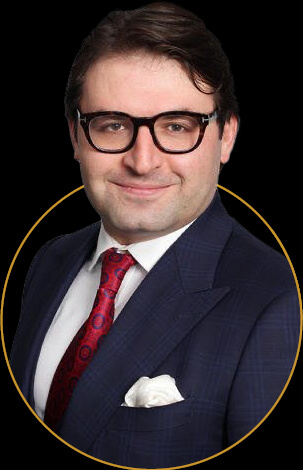CSL Limited (CSL, the Group, ASX: CSL) is global biotechnology business that provides lifesaving products to patients in 100 countries and employs 32,000 people. Originally known as Commonwealth Serum Laboratories, CSL was established in 1916 by the Commonwealth Government to manufacture vaccines like insulin and penicillin and vaccines against influenza, polio, and other infectious diseases. These vaccines were necessary to service Australia’s health needs when the nation was isolated from the rest of the world during the first World War. In June 1994, under a Keating-led government, CSL was publicly floated on the ASX at $2.30 per share.
CSL has three business units – CSL Behring, CSL Seqirus and CSL Vifor. CSL Behring develops and delivers therapies for people living with conditions in the immunology, hematology, cardiovascular, respiratory and transplant therapeutic areas. CSL Seqirus is one of the largest influenza vaccine providers in the world. CSL Vifor focuses on the treatment areas of iron deficiency, dialysis, nephrology and heart failure, kidney disease, gastroenterology and patient blood management.
CSL has reported a 17 percent increase in after-tax profit to US$1.9 billion for the half-year to 31 December 2023 on a 11 percent increase in total revenue to US$$8.05 billion. The strong result was driven by CSL Behring’s exceptional performance especially in immunoglobulins, which are used to treat infectious, autoimmune, and inflammatory conditions by normalising a compromised immune system. This business unit delivered US$5.2 billion, or 65 percent of Group revenue.
The profit result is equivalent to earnings per share of US4.18, from which a dividend of US$1.19 per share will be paid on 3 April. This amount is equivalent to about A$1.81 per share.
As is the case with healthcare businesses generally, and particularly drug manufacturers, CSL’s gross profit margin was 55 percent of Group revenue. Sales and marketing costs were 2 percent of revenue.
AEGIS – II trial conclusion
In a disappointing outcome the Phase 3 results of the AEGIS – II trial fell short of the primary efficacy standard necessary to enable a near-term regulatory filing with the US Food and Drug Administration (FDA). Surprisingly, CSL shares fell almost 5 percent immediately following release of this announcement to the ASX. The AEGIS – II study focused on heart attack patients who had experienced an acute myocardial infarction and found no improvement with the drug compared to placebo at 90 days.
The reason for the sizeable share price sell-off was that shareholder expectations of success of the Phase 3 trial were high in that it is the most ambitious study in CSL’s history and involved tests on 18,000 patients. Phase 3 is the final phase of testing before the drug’s details and clinical trial results are submitted to the FDA for approval of the drug’s release on the market. CSL has indicated that there are no plans for a regulatory filing with the FDA in the near-term.
Importantly, CSL stated that it had excluded any financial contribution from the AEGIS – II trial in its forward-looking estimates and statements. Accordingly, there is no direct material financial impact following conclusion of the AEGIS – II trial conclusion. It is reasonable for rational investors to consider the 5 percent share price sell-off on the back of the announcement to be an over-reaction.
The Future
Full-year 2024 earnings guidance has been reaffirmed in the range of a net profit after-tax of US$2.9 billion to US$3 billion, representing earnings growth of 13 to 17 percent compared to FY2023.
R & D investment is set to continue at 10- 11 percent of revenue.
Looking to the medium term, CSL anticipates double digit earnings growth, with particularly strong growth in CSL’s immunoglobulins franchise buoyed by ongoing strong patient demand. Patient demand is particularly strong for the separation of blood plasma into components which are turned into therapies to treat chronic immunodeficiency and bleeding diseases.
CSL’s other businesses include Seqirus, one of the world’s largest vaccine manufacturers, and Vifor, a Swiss maker of kidney disease and iron deficiency therapies.
The non-discretionary nature of expenditure by consumers and governments on healthcare, vaccines and immune deficiency issues should continue to support strong demand at high profit margins for CSL’s products.
The Group’s conservative debt level with net debt/EBITDA at approximately 2.5 times, a strong investment grade credit rating at A- by Standard and Poor’s, and growing demand for it’s products, management’s forecast of double-digit earnings growth over the medium term appears eminently achievable.

Michael Kodari is a globally recognised investor, philanthropist, and leading financial markets expert, renowned for his exceptional performance. With a strong foundation in financial markets, Michael has advised leading financial institutions and governments.
Chifley Tower, 2 Chifley Square,
Sydney NSW 2000
1300 854 151
© 2025 KOSEC | Kodari Securities Pty Ltd | ABN 90 147 963 755 | FSG | Terms & Conditions | Disclaimer & Legal
© 2025 KOSEC | Kodari Securities Pty Ltd
ABN 90 147 963 755
KOSEC - Kodari Securities does not provide any investment advice, nor is anything mentioned an offer to sell, or a solicitation of an offer to buy any security or other instrument. Anything discussed is for informational purposes only and does not address the circumstances or needs of any particular individual or entity. Investing in the stock market is high risk. Under no circumstances should investments be based solely on the information provided. We do not guarantee the security or completeness of information on this website and are not held liable. Kodari Securities PTY Ltd trading as KOSEC is a corporate authorized representative (AFSL no.246638) which is regulated by the Australian securities and investment commission (ASIC).